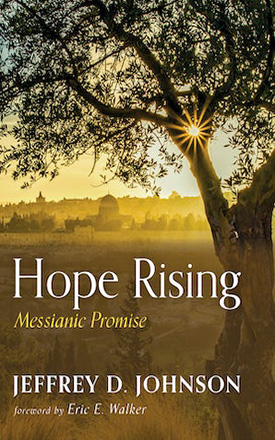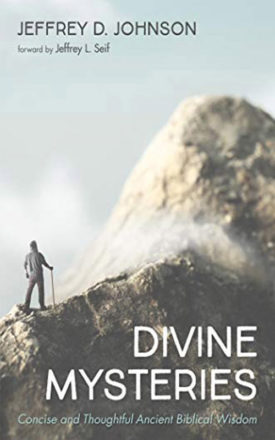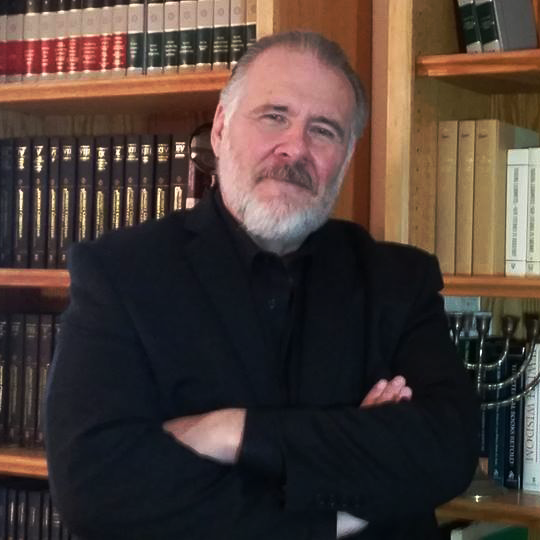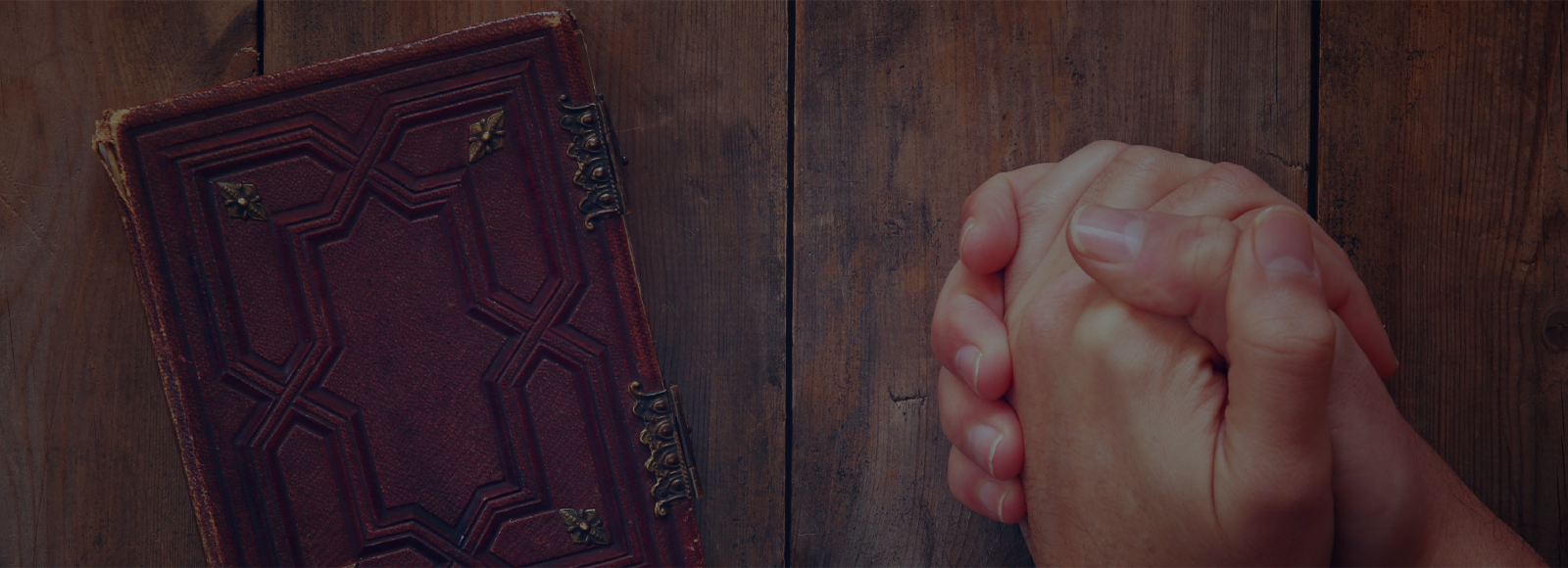Israel Today Resources:
-
 Hope Rising, Messianic Promise
Recommended donation: $20.00
Hope Rising, Messianic Promise
Recommended donation: $20.00
Add to cart
-
 Song of Song: The Greatest Lover
Recommended donation: $18.00
Song of Song: The Greatest Lover
Recommended donation: $18.00
Add to cart
-
 Divine Mysteries
Recommended donation: $15.00
Divine Mysteries
Recommended donation: $15.00
Add to cart
-

Isaac Was Comforted
“And Isaac brought her into his mother SarahŌĆÖs tent, and took Rebekah, and she became his wife; and he loved her: and Isaac was comforted after his motherŌĆÖs deathŌĆØ (Genesis 24:67).
This is a peculiar verse. What does it mean ŌĆ£Isaac was comforted after his motherŌĆÖs deathŌĆØ? What void did Rebekah fill? What was so significant in this event that caused the Holy Spirit to guide Moses to record this vignette of IsaacŌĆÖs life? To understand this verse is to understand the role of the woman in Jewish culture. God said concerning Adam, ŌĆ£It is not good that the man should be alone: I will make him an help meet for himŌĆØ (Genesis 2:18). The emphasis here is that ŌĆ£It is NOT goodŌĆØ this lonesomeness of man. Therefore, ŌĆ£I will make him an help meetŌĆØ meaning, ŌĆśone who rescuesŌĆÖ.
The woman plays a most important role in the Jewish home especially regarding the Sabbath day observance. Sabbath or Shabbat is the holiest day of the week. It is the time between the sun setting on Friday evening and the sun setting on Saturday eve. It is a time of worship, scripture reading, prayer, a special meal, special bread, lighting of candles, rest, remembering the Creator and the His creation, and a celebration of life. ŌĆ£Remember the Sabbath day, to keep it holyŌĆØ (Exodus 20:8).
Sarah, IsaacŌĆÖs mother, had passed away and left a huge void in the life of the family. When she was alive her presence nurtured a reminder of the blessings of God. As the one who rescues she would light the candles in their tent. The lighting was a precursor to Shabbat, as the 10 commandments were not yet mandated on Sinai. ┬ĀShe would prepare the Challah dough, the rising dough, the ŌĆ£miraculous increaseŌĆØ of the special bread. From the lit candles, which are symbols of hope, from the light she created, a cloud would form that hovered in, throughout and over the tent. Passersby would notice the hazy cloud. The delicate scent of the candle would kiss the senses of anyone near its glow. The tent itself was an insignia of provision and safety.
Understanding these truths we are reminded that the weekly tasks Sarah performed were wonderfully symbolic. They pointed to the great hope that one day Messiah will come and bring redemption. That messianic anticipation pulsated within the veins of Jewish belief. This profound hope is pronounced clearly within the Scriptures.
The Light
The light of the candle represents the light of God. When the Menorah, (the seven branch candle in the Temple) was lit, it is said, the light emanating from its golden lamp dispelled the darkness and shadows from all the corners of the Temple, and from there, throughout the whole world. SarahŌĆÖs act of lighting the candles leads us to the truth that the Light of GodŌĆÖs love dispels the darkness of sin and brings hope to the recipient. Jesus said it this way, ŌĆ£I am the light of the world: he that followeth me shall not walk in darkness, but shall have the light of lifeŌĆØ (John 8:12).Jesus, the Messiah, shed His blood on cruel Roman cross. He became our sin offering, our Passover lamb, so that anyone, who believes in Him, will be redeemed receiving eternal life. Without the shedding of blood there is no forgiveness of sin (Hebrews 9:22).
The Light within SarahŌĆÖs tent is a type of Jesus the Messiah who IS the Light that dispels the darkness of sin in the heart of man. For those who receive Jesus as Savior will experience, hope, life, joy, forgiveness and light (John 1:1-17).
The Bread
The Challah bread reminds us of the provision of God. ŌĆ£Give us this day our daily breadŌĆØ. Bread and water are the main staples in the wilderness. Christians are pilgrims just passing through the wilderness of this life.
Our lives speak volumes as to who we are. We belong to the Most High God. We are in this world, however, we are not of the world. We live, work and interact within the construct of this world and its social system. Christians are salt and light in their community. Believers must embrace life with a passion, as life is a gift from God. We must never be hesitant to experience the fullness of humanity as we are created in GodŌĆÖs image. Therefore, as Christians, we must move forward in our journey knowing that the Lord is with us and that He will never leave us without provision. Every morning the Israelites found manna from God, the bread from heaven. Likewise, we must daily make the journey and search for those delightful treasures God has provided tailored just for us. You will discover hope, joy, peace, goodness, compassion and mercy to name a few blessings of GodŌĆÖs provision.
GodŌĆÖs grace is always evident throughout our ŌĆ£pilgrimŌĆÖs progressŌĆØ. Even when we walk through the valleys of testing, trail and sorrow, we find wonderful treasures. We discover the golden nuggets of GodŌĆÖs provision, the sweet smell and taste of the warm and sweet, miraculously increasing, never-ending bread of GodŌĆÖs grace and mercy. The Challah (twisted bread) that Sarah baked was symbolic of GodŌĆÖs watchful provision in the wilderness. It is a common bread like the bread at Pentecost (Hebrew – Shavuot). All are welcome. As she kneaded the dough we are reminded of that we are clay in the MasterŌĆÖs hand. The sweet smell of rising dough causes us to remember that Jesus has given himself for us as a sweet fragrant offering and sacrifice to God (Ephesians 5:2).
When Abraham and Isaac entered the tent where Sarah was baking the bread they were brought face to face with the hope of the Messiah, the Anointed One, the Bread of Life. One day He will come. In fact, He did! Jesus, our Lord and Savior, is our ŌĆ£Bread.ŌĆØ He is the ŌĆ£Bread of LifeŌĆØ. He is our sustenance. Without Him we can do nothing (John 15:5). He is the living Word, therefore, we are sustained by learning from Him (Matthew 11:29; John 1:1,14). We learn from Him by reading the Scriptures. Jesus said, ŌĆ£I am the bread of life: he that cometh to me shall never hunger; and he that believeth on me shall never thirstŌĆØ (John 6:35).
Sarah was doing more that just baking bread. She was showing us ŌĆ£The Way, The Truth and The LifeŌĆØ (John 14:6).
The Cloud
The cloud from the candle that hovered in, throughout and above the tent reminds us of GodŌĆÖs presence. The cloud is symbolic of the Shechinah glory that was present in the wilderness in the form of a cloud. It was also present in the Tabernacle and Temple. The cloud also appeared on the Mount of Transfiguration. It represents GodŌĆÖs Glory. The presence of the cloud reminded those near its splendor, awe and terror that God is Holy and to be reverenced. People knew that God was worshipped and was present when they walked by SarahŌĆÖs tent. There is something different about people when they worship God. There is clear evidence that a person has placed their faith and trust in the Lord Jesus as they become a new creature (2 Corinthians 5:17). There is something unique and wonderful about those who believe in God. The glory that Jesus had with the Father, before the world was, He has given to those who believe in Him (John 17:5,22). It will be clear to all that you are a child of God. The glory of God will be upon you. Passersby will know you are a follower of God.
The Tent
When we think of the ŌĆ£tentŌĆØ we think of the Tabernacle sometimes called the ŌĆ£tent of meetingŌĆØ the place where the Israelites and all the people were called to meet God. The Tabernacle or Tent was patterned after the heavenly tabernacle (Hebrews 8:2; 9:11; Revelation 13:6; 15:5; 21:3). Subsequently we are reminded of the eternal where God dwells and where the saints abode. The Tent was a place of activity, responsibility and service.
The Tent was also symbolic of the relationship between husband and wife. God told Moses to have the men return to their tents, meaning go back to your wives (Deuteronomy 5:30; 20:7). Paul taught that the relationship between husband and wife represent the mystical, mysterious and miraculous union between the church and Messiah (Ephesians 5:22-33). Believers in Jesus are one with God. Jesus is God!
Rebekah
Rebekah (Hebrew ŌĆō Rivkah) brought joy, brightness, hope, life and a renewed faith as the spirit of God dwelled in her. Isaac was comforted by her presence mentally, emotionally, physically and spiritually. This is true of anyone who believes in Messiah Jesus. Jesus said, ŌĆ£I am come that they might have life, and that they might have it more abundantlyŌĆØ (John 10:10). The Lord brings peace, joy, life, fullness, purpose, provision, protection, and comfort. We are complete in Him (Colossians 2:10) and through Him we will find totality of life in the human experience and in the eternal hope. Jesus said, ŌĆ£Come unto me, all ye that labour and are heavy laden, and I will give you rest. Take my yoke upon you, and learn of me; for I am meek and lowly in heart: and ye shall find rest unto your souls. For my yoke is easy, and my burden is lightŌĆØ (Matthew 11:28-30).
ŌĆ£Isaac was comfortedŌĆØ
Shalom and Blessings,
Until He comes, we are
Together Under His Wings,
Dr. Jeff
Time is short, Life is precious, and Jesus is coming soon!


